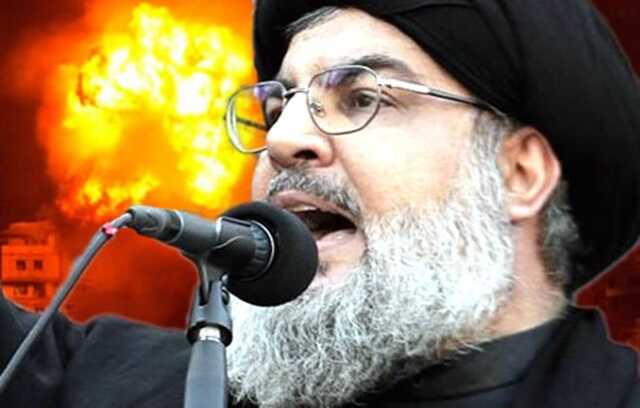
Israel has killed Hezbollah’s leader Hassan Nasrallah - once dubbed the Shia Bin Laden - something they were unable to do during its last war in 2006 against the Lebanese terror group. Mirror defence and security editor Chris Hughes reveals how it was done
Spectacular covert Israeli spy missions in war-torn Syria opened up an opportunity for massive deep penetration operations inside Hezbollah’s once secretive Middle East network.
During its last war in 2006 against the Lebanese terror group Israel failed to locate and kill its shadowy and ruthless leader Hassan Nasrallah - once dubbed the Shia Bin Laden.
But in dozens of stunning covert operations Israeli Mossad hit squads and complex military intelligence surveillance gains, Israel has now decapitated Hezbollah’s leadership.
Its enormous bombing raid on Nasrallah’s underground bunker in the Beirut suburb of Dahieh on Friday highlighted just how in depth Mossad has penetrated Hezbollah.
Now it is emerging that Israeli intelligence likely spent years inserting agents into Hezbollah’s murky operations which have supported the Bashar Assad regime in Syria.
After 2006, they decided never again would they fail to get to the leadership of Hezbollah if war broke out afresh. The anarchic mayhem of the Syrian civil war that has raged since 2011 was exactly the kind of ungoverned space that Israeli spies were able to exploit to prepare for this war.
Sources suggest Israel was even ready to monitor the funerals of those they have hit in Beirut, leading to a macabre, self-perpetuating cycle of assassinations.
Simply, Hezbollah’s massive expansion into Syria slowly opened the security lid on what had once been one of the most secretive and well-organised networks in the Middle East.
It is possible the chaos of Syria’s killing fields led to a gradual degrading of Hezbollah’s security checks, background research on newcomers and ancillary “helpers.”
Through gathering intelligence on the network, the whereabouts and patterns of movement of Hezbollah operatives Mossad and other agencies built up a huge picture.
Telephone numbers, addresses, contacts, third party helpers, timings and live conversations about future and current operations provided a treasure trove of information.
It has led to the catastrophic assassinations of dozens of Hezbollah, Hamas and Palestinian Islamic Jihad leaders, culminating in the death of the most-wanted Nasrallah.
Israeli intelligence even managed to interdict the logistical supply chain for Hezbollah’s pagers, mobile phones and walkie talkies, spiking them with explosives.
Thousands of blasts, triggered remotely in a very real and horrific kind of James Bond-style mass hit led to the butchering and maiming of many militant fighters.
It has struck terror into the hearts of hardened extremists, crippled their communications network and dealt a huge blow to Hezbollah’s morale and capability.
That is not to say Hezbollah does not remain a danger - Israel has awakened a brutal and revenge-fuelled beast in the Middle East and will not have done it lightly.
But it chose its moment, committed to a campaign of high-drama and impactful killings that has threatened to force the war to spill over into the wider Middle East.
Israel’s calculation may be that it has dealt such a series of humiliating and devastating blows to Hezbollah that Iran’s once incredibly potent proxy is now far less of a danger. And the region is now braced for what Hezbollah will do next and perhaps more crucially the next move by its Tehran paymasters.
Read more similar news:
Comments:
comments powered by Disqus

































